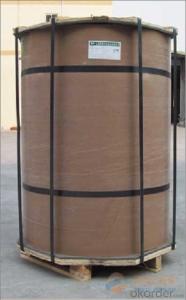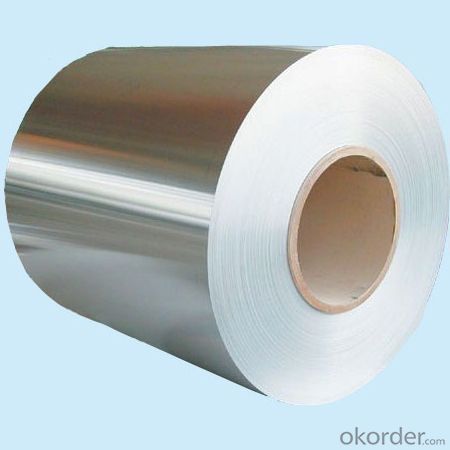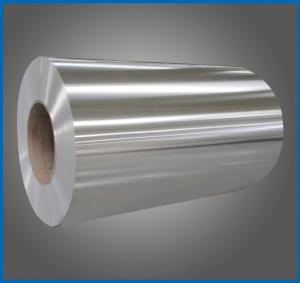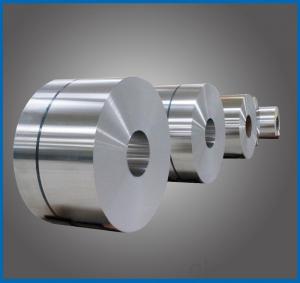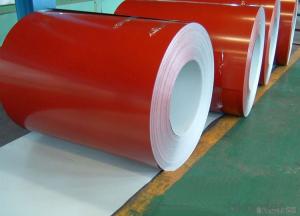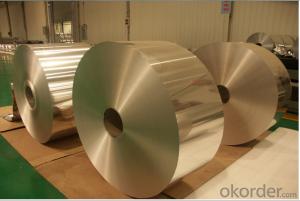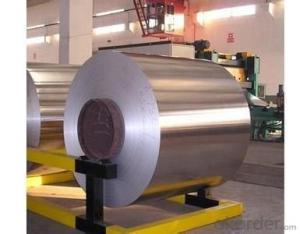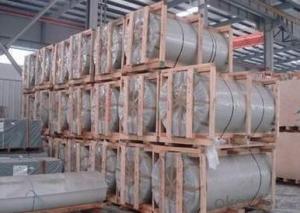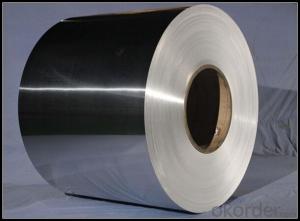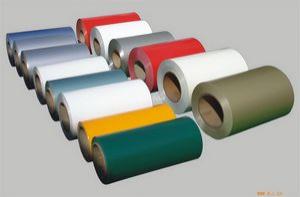1050 Aluminum Coil Price with Package Eye to the Sky
- Loading Port:
- Shanghai
- Payment Terms:
- TT OR LC
- Min Order Qty:
- 5 m.t.
- Supply Capability:
- 100000 m.t./month
OKorder Service Pledge
OKorder Financial Service
You Might Also Like
1.Structure of Aluminum Coil with Package Eye to The Sky:
Aluminum Coil with Package Eye to The Sky is designed for many field such as electronics, instruments, lighting decoration, packing industry, and house decoration, curtain wall, honeycomb-core panel, sandwich panel, aluminum composite panel, aluminum composite pipe etc.. Aluminum Coil with Package Eye to The Sky is hard and everlasting under the blazing sun. You can choose the alloys as your habitation and we will do our best to meet your requests.
2.Main Features of the Aluminum Coil with Package Eye to The Sky:
• Smooth surface
• High manufacturing accuracy
• High strength of extension and yield
• Well packaged
• No marks, no scratch, no excessive oil
3. Aluminum Coil with Package Eye to The Sky
Alloy: 1050, 1060, 1070, 1100, 3003, 3004, 3005, 3105, 5052, 5083, 5754, 8011, 8006
Temper: H14, H16, H18, H22, H24, H26, H32, O/F
Thickness: 0.2mm-100mm
Width: 30mm-1700mm
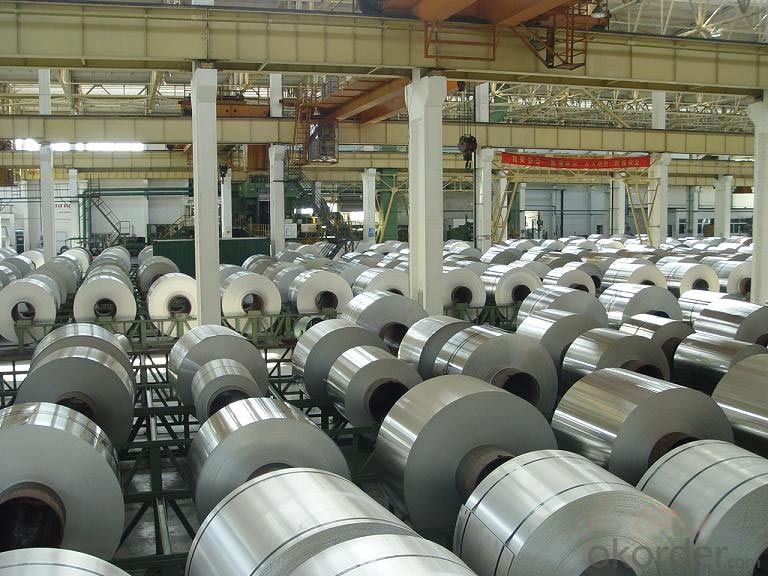
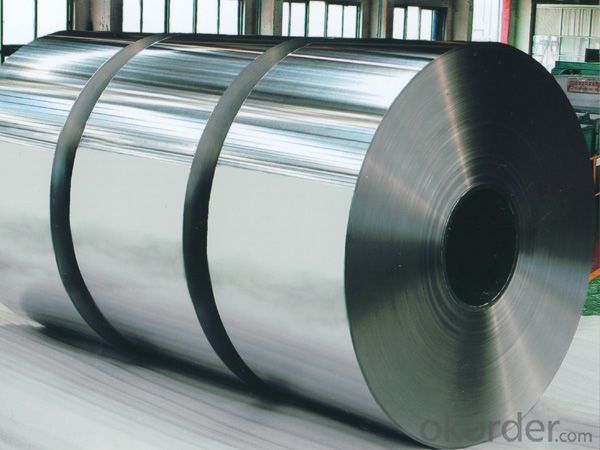
4. Production of Aluminum Coil with Package Eye to The Sky
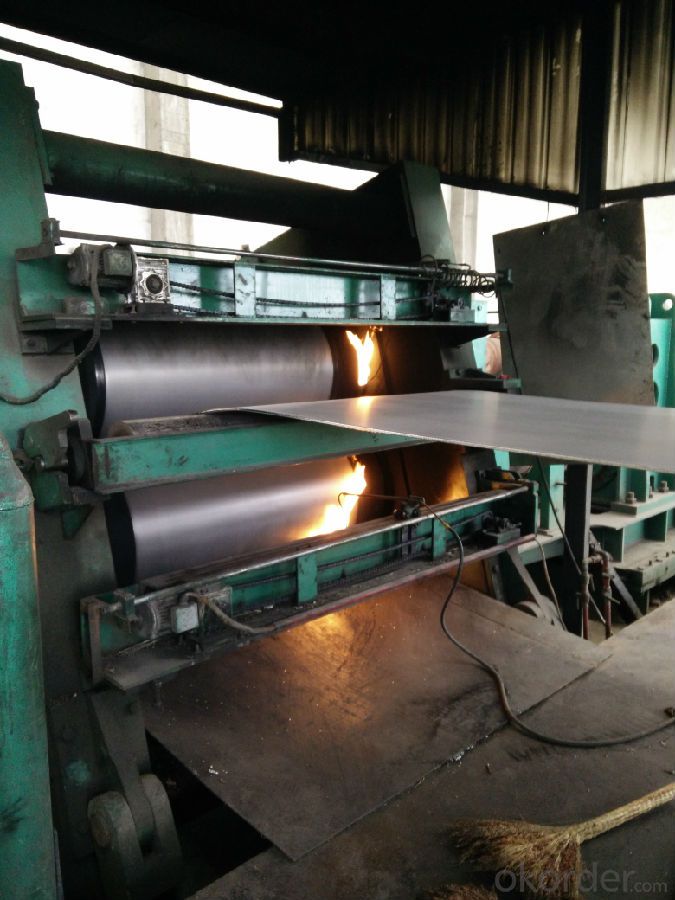
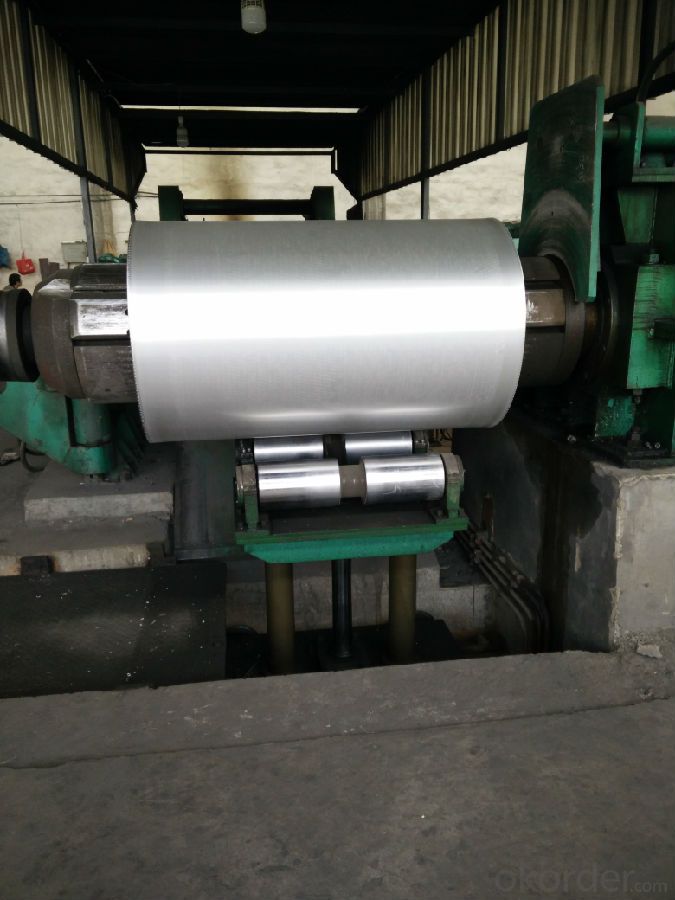
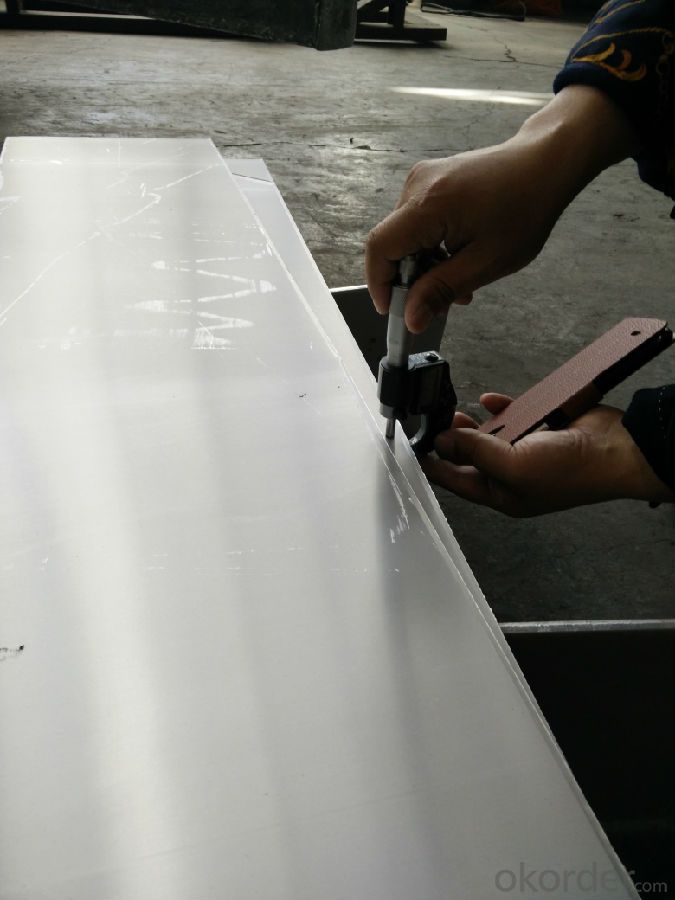
5.FAQ
We have organized several common questions for our clients,may help you sincerely:
① How about your company?
A world class manufacturer & supplier of aluminum coil and alloy blanks. Aluminum production base is comprised of 18 aluminum annealers, 10 coil and foil mills, 4 continuous production lines, 2 hot rolling production line and 3 prepainted lines.
Export 5000 tons per month to Asia, America and Middle East. Always do the best for our clients.
②Can you guarantee the quality of the products?
We are responsible for the quality of materials to get a long-term cooperation with clients in a reasonable period of time and we are glad to arrange and coordinate any third party inspection for you.
③What is the delivery time after purchase?
35 day after receiving client’s deposit or correct LC
- Q: Can aluminum coils be used in low-friction applications?
- Yes, aluminum coils can be used in low-friction applications. Aluminum is a lightweight and corrosion-resistant material that has excellent thermal conductivity. These properties make it suitable for various applications where low-friction is desired. In industries such as automotive, aerospace, and HVAC systems, aluminum coils are often used in heat exchangers, evaporators, condensers, and cooling coils. These coils are designed to efficiently transfer heat, while minimizing friction and energy loss. Additionally, aluminum coils can be used in electrical motors, generators, and transformers, where low friction is essential for smooth operation and reduced energy consumption. The lightweight nature of aluminum also helps to reduce the overall weight of the system, leading to improved efficiency. Furthermore, aluminum coils can be utilized in various types of machinery and equipment that require low friction, such as conveyor systems, sliding mechanisms, and bearings. Aluminum's low coefficient of friction allows for smooth and efficient movement, minimizing wear and tear on the components. Overall, aluminum coils are a versatile solution for low-friction applications due to their lightweight, corrosion-resistant, and thermally conductive properties. Their use can lead to improved energy efficiency, reduced maintenance costs, and enhanced performance in a wide range of industries.
- Q: How do aluminum coils contribute to energy-efficient appliances?
- Enhancing the energy efficiency of appliances is a key role played by aluminum coils. The utilization of aluminum in the form of coils enables efficient transfer of heat, which is vital for appliances that require cooling or heating mechanisms. To begin with, the thermal conductivity of aluminum coils is exceptional. This implies that they can rapidly absorb and dissipate heat, resulting in more efficient cooling or heating procedures. This is particularly significant in appliances like refrigerators, air conditioners, and heat pumps, where effective heat transfer is crucial for maintaining the desired temperature. In addition, aluminum coils are lightweight yet durable, making them an ideal option for energy-efficient appliances. The lightweight nature of aluminum reduces the overall weight of the appliance, leading to lower energy consumption during transportation and installation. Furthermore, the durability of aluminum ensures a longer lifespan for the appliance, reducing the need for frequent maintenance or replacement. Furthermore, aluminum exhibits high resistance to corrosion, a common issue in appliances that come into contact with water or moisture. By incorporating aluminum coils, manufacturers can ensure the longevity and reliability of the appliance, thereby contributing to energy efficiency by minimizing the need for repairs or replacements. Lastly, aluminum is a highly recyclable material. The use of aluminum coils in appliances promotes sustainability and reduces the environmental impact. By opting for energy-efficient appliances that integrate aluminum coils, consumers can support the circular economy and contribute to a more sustainable future. In conclusion, aluminum coils significantly contribute to the energy efficiency of appliances. Their exceptional thermal conductivity, lightweight yet durable nature, corrosion resistance, and recyclability make them an ideal choice for enhancing the performance and sustainability of energy-efficient appliances.
- Q: What are aluminum coils?
- Aluminum coils are thin, flat pieces of aluminum that are wound in a spiral shape. They are commonly used in various industries for their versatility and durability. These coils are typically made from high-quality aluminum alloy, which makes them lightweight, corrosion-resistant, and easy to work with. Aluminum coils are used in a wide range of applications, including building and construction, automotive manufacturing, electrical appliances, and packaging. They can be further processed into different forms, such as sheets, foils, or strips, depending on the specific requirements of the industry or product. Overall, aluminum coils are an essential component in many manufacturing processes and play a crucial role in various industries.
- Q: Is it possible to construct a portable speaker or speaker docking station using aluminum coils?
- <p>Yes, you can use aluminum coils in the construction of a portable speaker or speaker docking station, but they are not the primary component. Aluminum coils can be used in the speaker's electromagnetic parts, such as in the voice coil of the speaker driver or in the transformer of a docking station. However, the main components of a speaker include a diaphragm, voice coil, magnet, and enclosure, while a docking station would require a connector for the device, an amplifier, and possibly additional circuitry. The aluminum coil's role is to facilitate the magnetic field interaction with the voice coil, which converts electrical signals into sound waves. It's essential to consider the entire design and other necessary components when building such devices.</p>
- Q: Are there any limitations on the bending or shaping of aluminum coils?
- Aluminum coils do have limitations when it comes to bending or shaping. Despite being a soft and malleable metal, there are factors that can affect its bendability. The thickness of the aluminum coil plays a role in its bendability. Thicker coils are generally more difficult to bend compared to thinner ones because they have increased resistance to deformation. The temper or hardness of the aluminum coil also affects its bendability. Different tempers, such as soft, half-hard, or hard, have varying degrees of malleability. Soft tempers are easier to bend, while harder ones require more force and may be prone to cracking or breaking during bending. The desired bend or shape's design and complexity can impose limitations as well. Sharp bends or intricate shapes may cause the aluminum coil to crack or deform, especially if it lacks proper support or if the bending radius is too small. Impurities, defects, or alloying elements present in the aluminum coil can also impact its bendability. These factors can lead to inconsistencies in the material's mechanical properties, making it more susceptible to cracking or breaking during bending or shaping. Therefore, it is crucial to consider the thickness, temper, design, and quality of the aluminum coil to ensure successful and safe bending and shaping.
- Q: Which type of wheel is more durable, long-lasting and which wheel type would cost more, Aluminum or chrome?
- i like aluminum although it does wear easily.
- Q: What are the different coil embossing options available for aluminum coils?
- Aluminum coils offer a range of coil embossing options, each with its own unique textures and patterns. Stucco, diamond, and 3-bar embossing are some common options for aluminum coils. Stucco embossing creates a textured pattern similar to a stucco wall, making it popular for its ability to hide imperfections and provide an attractive finish. It finds applications in industries like construction and automotive. Diamond embossing, on the other hand, creates a diamond-shaped pattern that enhances the coil's strength and durability. It is commonly used in flooring, roofing, and decorative applications. 3-bar embossing adds three parallel lines to the aluminum coil's surface, providing a visually appealing look and enhanced traction. This makes it ideal for applications requiring slip resistance, such as ramps and walkways. In addition to these options, there are other embossing patterns available, such as wood grain, hammer tone, and leather grain embossing. These patterns mimic natural materials and are often used in interior design and architecture. The choice of embossing option depends on specific requirements and desired aesthetics. Manufacturers and customers can select the most suitable pattern based on factors like durability, texture, slip resistance, and overall design intent.
- Q: Can aluminum coils be used in the production of fire-resistant structures?
- Yes, aluminum coils can be used in the production of fire-resistant structures. Aluminum is naturally fire-resistant and has a high melting point, making it an ideal material for structures that need to withstand high temperatures. Aluminum coils are commonly used in the construction industry for fire-resistant applications such as roofs, walls, and insulation. Additionally, aluminum is lightweight and durable, making it easier to install and maintain in fire-resistant structures.
- Q: This question asks about the distinctions among various grades of aluminum coils, likely referring to their properties and uses.
- <p>Aluminum coils are differentiated by grades based on their alloy composition, thickness, and specific applications. Common grades include 1000 series (99% pure aluminum, soft and malleable), 3000 series (aluminum-manganese alloys, good for cooking utensils), 5000 series (aluminum-magnesium alloys, used in marine applications), and 6000 series (aluminum-magnesium-silicate alloys, known for strength and used in construction). Each grade has distinct properties such as strength, formability, and corrosion resistance, which determine their suitability for different industries and applications.</p>
- Q: Aluminum is soft, so I have a roll coating, the material is very soft, 0.7*970, into 2100, it can be processed
- The profile: steel wire steel wire rod steel I-beam steel H steel rail profile quality profile of other profilesThe stainless steel plate, stainless steel coil, stainless steel stainless steel tube stainless steel stainless steel wire stainless steel billet stainless steel metal products and other stainless steel materials
Send your message to us
1050 Aluminum Coil Price with Package Eye to the Sky
- Loading Port:
- Shanghai
- Payment Terms:
- TT OR LC
- Min Order Qty:
- 5 m.t.
- Supply Capability:
- 100000 m.t./month
OKorder Service Pledge
OKorder Financial Service
Similar products
Hot products
Hot Searches
Related keywords
